|
Before coming to University, I really wanted to be a professional golfer. My coach said I had some natural talent, and I managed to get to a pretty good standard as a result of his lessons and going out on the course regularly with my dad. However, after a while of steady improvement, I hit a wall. I plateaued, and my handicap started yo-yoing. I asked my coach what was up, and he gave me a lesson and some good pieces of advice. But when I played out on the course with my dad later that week, I was still hitting every bush and tree in sight. When I went back to my coach, he asked me a question, one that made me realise what I’d been doing wrong all along. The question he asked when I complained to him was, “Well, have you been practising what I taught you?” And I hadn’t. Sure, I’d been going out on the course with my dad, but I hadn’t been going down to the Driving Range hitting bucket after bucket, like everyone else who genuinely wanted to be a pro golfer was doing. I wasn’t practising what my coach had said, which meant there was no way I was going to be able to actually implement it. Ok, ok, enough golf talk. The point of this story is to show exactly what the Dalai Lama is saying here about achieving happiness. The advice he’s giving, and the teachings that are contained in this project, are not quick fixes. There’s no nugget of information that you’ll read and it’ll be like a light-switch of happiness has just been turned on (although that would be such a cool invention). The brain is a muscle, so just like people who regularly go to the gym (myself not included) to work out physical muscles, it’s just as important to train our mental muscle. That’s why I’m hoping this playlist that we’re creating will be something we can keep coming back to in order to reinforce and remind ourselves of the key ideas. “Even when the sky comes falling down, I’ll be ready when the sky comes falling down”
‘When the Day Comes’ is all about this preparation, and it’s put in the metaphorical context of readying oneself for a war, but we can just imagine we’re going to war with negative states of mind (too much of a stretch?). “Today I will march for you, today I will march for me, we raise our arms and hope for better days” In all seriousness, the Dalai Lama explicitly makes the comparison to soldiers drilling for battle, saying that we must train the mind in the same way, so that it can handle any obstacles thrown its way. We’ll never be able to stop encountering some forms of suffering, even if we just stayed indoors forever and never ventured outside (something that we’ve all recently found out isn’t a lifestyle we want to continue any longer than we have to). But the actual experience of suffering happens in the mind, so even though we can’t change things like old age and death, we can change how we handle them, through training the mind in the field of happiness. Equally it’s interesting that Howard C. Cutler, a psychiatrist and the man interviewing the Dalai Lama in The Art of Happiness, says that neuroscience has proven that the brain can design new patterns and new combinations of nerve cells in response to our ways of thinking. In other words, our brains are malleable, which means we can adjust and alter their wiring through practising new, positive habits. It seems that practice really does, as my mum always tells me, make perfect. Well, maybe perfection is a bit of a lofty goal…but it can at least make us happier, and that’s not only an achievable aim, but one that we all have a right to reach. “Even when the day comes, I’ll be ready when the day comes” So raise those dumbbells of delight and hop on that tranquility treadmill - it’s workout time. Maxim Mower
0 Comments
Wait. Hold up. ‘Accept that suffering is part of life’…but isn’t the whole point of Buddhism to remove suffering? This definitely sounds counter-intuitive at first, but after thinking about it for a while, it really does make sense. If we embrace the fact that suffering is inevitable, then it removes any kind of resentment or feeling of ‘why me?’ when things do cause us pain. The universality of suffering is yet another thing that bonds us humans together, because it’s something we all experience, one way or another. Furthermore, acknowledging that things aren’t always going to go your way makes it easier to move on from times when you fall down, because you accept that things didn’t work out, and that just means you can dust yourself off and keep going. Especially with the current COVID-19 pandemic, everyone’s having to make compromises and adjustments, and that’s caused a heck of a lot of upheaval and turmoil across the globe. But we’re all in it together, and I think if we approach this pandemic with the Dalai Lama’s mentality of acceptance, then we can see it not as a massive injustice against us, but rather as an opportunity to really come together (accidental Beatles reference) and help (whoops, another one) each other. Just let it be (ok, that one was on purpose). It might be easy to look at the Dalai Lama and say, ‘oh, but what does he really know about suffering?’. And it’s true that the life of a monk seems very peaceful and unperturbed. But the Dalai Lama has not by any means had an easy life. He was just 15 years old when China invaded Tibet in 1950, forcing him to assume political power despite only being a teenager. He was then exiled from Tibet in 1959 after leading a failed Tibetan uprising against Chinese occupation, and has since had to live with the knowledge that his people are being persecuted, and that there’s nothing he can do about it except campaign for change. So I think it’s safe to say he’s seen his fair share of struggle and suffering, which makes it even more inspiring that he can adopt this stance of acceptance. In The Art of Happiness he repeatedly references his attitude of forgiveness and compassion towards the people that exiled him and took control of his country, and outlines his hopes for a peaceful resolution. This brings us to another key aspect of this teaching - accepting that suffering is inevitable does not mean that we should simply resign ourselves to this pain and not try to change our situation. I think it is more about doing this without harbouring any feelings of resentment and fear, and this is where an attitude of acceptance can help us. There are lots of possible songs that would be relevant for this teaching. I was tempted to pick Kelly Clarkson’s ‘(Stronger) What Doesn’t Kill You’, Andra Day’s ‘Rise Up’, and numerous others. Saying ‘I get knocked down, but I get up again’ (hey that’s catchy…should I become a songwriter?) is clearly a very common theme in music, probably because it’s so relatable and, like I said earlier, universal. But I went for Coldplay’s ‘Up&Up’, and I think it fits the bill perfectly, because it’s all about finding yourself in difficult situations where it would be easy to give up. But instead of giving up, they turn around and say ‘we can do this.’
“We’re gonna get it, get it together right now, we’re gonna get it, get it together somehow” This links back to the very first teaching in this project, which was all about creating that heartfelt intention to be happy. The moments described in ‘Up&Up’ are all crossroads, where the character in the song has the choice between resigning themselves to their plight, or the route of trying to achieve happiness. “Lying in the gutter, aiming for the moon; trying to empty out the ocean with a spoon; up and up” The above scenarios are clearly hyperbolic, but they portray impossible tasks, where there would undoubtedly be a feeling of hopelessness in chasing such an unattainable aim. And hopelessness is a completely understandable response to suffering, especially when it feels relentless. But that’s what I love about the song, it flies in the face of what seems possible and just tells us to keep striving for our goal regardless. It’s all about perspective. “See the forest there in every seed, angels in the marble waiting to be freed; just need love, just need love” The story behind Gospel singer Merry Clayton’s appearance on the track also adds to the value of ‘Up&Up’, in showing us how to accept suffering so we can move on from it. Chris Martin describes how, when they asked her to be a part of their album, she had just had both her legs amputated at the knee, following a serious car accident. In an interview, Martin described her inspiring attitude, despite this suffering: “She came in a wheelchair and did her thing and then said, ‘I just lost my legs’. We didn’t know. She’d just come out of hospital the week before but was so full of joy, gratitude, love and life.” Suffering is universal, and sickness, old age, and death are tragically but intrinsically part of the world we live in. However, given this inevitability of suffering, the Dalai Lama’s teaching makes sense, taking the approach of ‘well, if this is going to happen anyway, and there’s nothing I can do about it, then I must accept it’. Personally, I’ve always been terrified of death, not just my own death but that of my loved ones. Grief is a horrible thing to experience, and equally the idea of just disappearing is incredibly scary. One day you’re here, one day you’re not, and the world keeps spinning regardless, and that just seems wrong. But a life spent being fearful and overly aware of the inevitability of death isn’t going to be a happy one, because you’ll always have one eye on the future, which means you won’t be able to be fully present and seize the moment that’s before you. Once we accept the inevitability of death, and of suffering in general as just a part of life, the Dalai Lama, and virtually all renowned Buddhist figures, say that this will lead to greater peace and tranquility, and will ease anxiety about the future. It’s like that famous quote about how ‘Life is 5% what happens to you, and 95% how you react to it’. This is definitely something I’m still trying to learn and to practice, but hopefully after reflecting on this idea of acceptance in tandem with the rousing message of ‘Up&Up’, it’ll be easier to embrace. I wanted to finish today’s post on another quote that’s especially pertinent, given this project’s attempts to combine music and teachings on happiness: “We can’t always choose the music life plays for us, but we can choose how we dance to it.” Maxim Mower When I first read this teaching, it seemed to me to fly in the face of everything that had been covered so far. What happened to embracing and being compassionate towards everyone? What’s all this ‘examine your relationships’ business? I think it’s important to point out that, in The Art of Happiness, the Dalai Lama mentions this lesson in the context of conflicts in marriage. However, the discussion between Cutler and the Dalai Lama that ensues can definitely be applied more generally, because they frame the teaching in terms of all relationships, not just that of marriage. It’s important, the Dalai Lama says, to examine the underlying basis of any relationship when there are problems, because it tells you whether it is built on strong or shaky foundations. For example, imagine a prince being friends with other princes from different kingdoms. This is just hypothetical (and I’m sure there are numerous prince-based friendships that are perfectly good!), but say this prince, for some reason, did something wrong and as a result lost his princeship. He subsequently wasn’t accepted by his other prince friends, because he was no longer on equal footing with them in terms of status, so they couldn’t maintain their relationship with him. The prince could have saved himself the hurt of these lost friendships, according to the Dalai Lama, by looking at what the relationships were based on - namely, status. Of course, a relationship might start based on something like status, wealth, etc. and then blossom into something a lot deeper, which is great. But I think the key message from the teaching here is to look at our relationships, and just approach them with the mindset of ‘how can I make this bond as deep and meaningful as possible’. When I first read the principle, it kind of sounded like the lesson was to doubt all your relationships and, despite everything so far being so focussed on cultivating trust and openness, to just fall back into a cycle of mistrust and hostility. Of course, this is not the message. If anything, it seems to be more about trying to strengthen our relationships through an understanding of what a good, strong bond is centred around - namely, feelings of compassion, love, honesty, and so on. “When the bones are good, the rest don’t matter/Yeah the paint could peel, the glass could shatter”
I picked ‘The Bones’ because, apart from being an amazing song anyway, it’s perfect for this teaching. It’s all about building a relationship on sturdy foundations so that no matter what obstacles come your way, they’re never enough to destabilise it. “Yeah life can sure try to put love through it, but we built this right, so nothing’s ever gonna move it” This song is especially pertinent because I wanted it to be clear that this isn’t about doubting your current relationships - like I said, that’s only going to lead to negative feelings of mistrust and hostility. In Buddhism, doubt is one of the five hindrances of the mind that prevents us from clarity and believing in the path. Instead, we should trust our intuition and ‘the feeling in our bones’, and if we’re true to ourselves in that sense, everything should seem a lot clearer. In ‘The Bones’, there’s no overthinking or doubt involved, and there’s no superficiality to it. But I also love that in the story of this song, the bones also represent the core base from which the relationship is created, making for a nice metaphor. “The house don’t fall when the bones are good” From experience, it’s obvious that our relationships with our loved ones play a key role in our wellbeing and happiness. So it surely makes sense to pour a lot of effort into making these bonds as loving and strong as possible. Linking this back to a previous post in this project, a key way of ensuring this is to be as compassionate and empathetic as possible to those around us (Song 9). “Let it rain, ‘cause you and I remain the same” Maxim Mower It’s just one word, but in my view it’s easily one of the most important words that will come up in this project. In a social media fuelled culture of instants, where it’s all about an immediate ‘Like’ or ‘Love’ react to a picture, which is just a snapshot of our life, I feel like it’s easy to translate this attitude into real life. We’re inevitably more inclined to make a much quicker judgment on someone, because that’s what we’re forced to do on social media. As I’ve mentioned before, I think ‘cancel culture’ is a product of this, because all it takes is one controversial comment by a celebrity, and they’re ‘cancelled’. But is that one comment, or that one image, really representative of what that person’s actually like? Having said this, social media can sometimes have a really positive impact in improving our willingness to see life from someone else’s perspective. Apps like Instagram and Facebook give people an amazing, far-reaching platform to share their story, and to shine a light on where they’re coming from, in their own words - take the #MeToo campaign, for example. It doesn’t all have to be filtered through a biased news report anymore (sorry, I’m hating on the news again…didn't someone say something about cultivating compassion…?) From the Buddhist texts and teachings that I’ve read, there seems to be a really strong emphasis on removing judgment. In meditation, for example, it’s key to dispel any expectations or pressure that you put on yourself. If a weird idea or image pops into your head while meditating, you just stick a pin in it and label it neutrally as a thought - you don’t judge it. Applying this to how we treat other people, I think it’s almost impossible to be truly compassionate without having some level of empathy alongside it. It helps so much in our quest to be kind and understanding, if we genuinely do understand where the person is coming from and why they’re acting as they are. On a personal note, I know that if I’m stressed or upset with myself about something, it can impact how I react to other people. I might be a bit shorter with them, and have less patience. This experience is useful in that if anyone is particularly short or impatient with me, my initial reaction might be one of annoyance. But if I step in their shoes for a moment, I can appreciate that, like me, it’s just because they’re stressed or upset about something, and that’s why they’re taking it out on those around them. This helps me react to them not with anger or annoyance, but with compassion. I know I might sound like a broken record (ironic given that I’m trying to combine these teachings with music…!), but this again links back to the idea of us all sharing common ground in that we’re all human (Song 2). We often share similar emotions and similar reactions to those emotions, which can help us greatly in empathising with others. “So on we go, his welfare is my concern, no burden is he to bear, we’ll get there”
Everyone’s fighting their own personal battles, however small or insignificant they might look from the outside. This song highlights that we’re all on the same road in a way, we’re all trying to figure our lives out, so why not help each other on our journey? “While we’re on the way there, why not share? And the load doesn’t weigh me down at all, he ain’t heavy, he’s my brother” They might be singing specifically about brotherhood, but this can be applied to all our relationships in life. Everyone’s suffering is valid, so just as the Dalai Lama says we shouldn’t judge ourselves, he also says that we shouldn’t judge others. This will help make those around us happier, as well as bringing us closer to them and again, tying in with Song 8, this makes the world seem a much friendlier place. I want to finish today’s post with one of the (only) useful things I got out of A-Level English, because I think it perfectly summarises what I’m trying to say. It’s this amazing quote from Atticus Finch in To Kill A Mockingbird - “You never really understand a person until you consider things from his point of view... until you climb into his skin and walk around in it.” Maxim Mower This is essentially a continuation of the previous teaching (Song 7), in that it is concerned with how we perceive others, and in turn how we treat others as a result of these perceptions. While Song 7 was centred around the attitudes we should have towards other people, such as being kind, loving, and compassionate, today’s principle shifts the focus slightly. Instead of simply saying that we should be compassionate, it makes the further step of saying that all humans are naturally compassionate. This seems like a minimal distinction on the surface, but it has important implications for how we respond to other people’s actions. You know how there are some people that we just dismiss as ‘bad apples’ or ‘lost causes’ - they’re bad to the bone, bad eggs…the list of metaphorical ‘bads’ is endless. Well, if we view human nature as being compassionate - something that is supported by science - then we aren’t so quick to dismiss people as being inherently bad and therefore not worthy of support. I think this approach seems like a really good way of supporting forgiveness and improving tolerance. Personally, I also find it a reassuring thought that deep down we’re all naturally compassionate. Not only does it add weight to the idea that we all have something in common (Song 3), but it also makes the road to becoming truly compassionate seem a lot easier. If it’s already inside us, it seems like a case of unlocking it by looking inwards, as opposed looking out into the world in order to try and put our finger on this abstract concept of ‘compassion’. I don’t know about you, but that sounds like trying to find a needle in a haystack. The song I’ve chosen for this lesson is ‘Most People are Good’ by Luke Bryan, and I love it because it embodies this idea of viewing others as inherently compassionate.
“I believe most people are good, and most mamas oughta qualify for sainthood” It was written in an increasingly polarising political climate in the US, and the song’s writers have spoken about how they wanted to hone in on the fact that, despite all the rivalry, most people do love one another and try to help each other out. When events like elections divide a nation, it’s easy to focus on these tensions and battle lines and go back to feeling as if there’s no common ground between the sides involved. But again, this ties in with Song 3 in underlining how there is always a way to find common ground - after all, someone’s political views only make up one small aspect of their personality. “I believe if you just go by the nightly news, your faith in all mankind would be the first thing you lose” The news has always kinda bugged me, because all you’re shown is the worst things humans are doing. And it’s true what it says in the song, that if you thought this was an accurate representation of humanity, then you’d quickly lose faith in the goodness and compassion of people. But there are so many amazing, heartwarming things that humans are doing every single day, and it’s just a matter of what you choose to focus on. It can sound naive or twee to say, ‘Yeah, you know what, I do think most people in the world are good’. But if you view people as being inherently compassionate, then it’s a no-brainer. Everyone has the capacity for compassion in them, and this should always offer us a ray of hope, even when we see so many terrifying, inhumane acts on the news. Here’s a really good site which only documents ‘good news’, and I’d highly recommend it for a daily dose of positivity, to counter the often disheartening regular news. “I believe you love who you love, ain’t nothing you should ever be afraid of” Which song are you choosing for today's teaching? Maxim Mower I found this one especially enlightening, because I’ve never been an amazingly trusting person, and often fear the worst in situations, and this would only make me even less trusting, and then fear the worst even more, in a vicious cycle. But by really focussing on cultivating an attitude of love, kindness and compassion towards others, even just for a day, it makes the world seem a much less scary place. Trust comes a lot easier, and I guess it’s because we project how we’re feeling onto other people. So if we’re feeling envious or angry towards someone, we presume they must be feeling something similar, and that makes them appear hostile in our minds. We see words like ‘love’ and ‘kindness’ thrown around a lot, whether it's on a Pinterest pin, a H&M t-shirt, or even the cover of a Paperchase journal. There’s thousands of inspirational quotes and adages online telling us to ‘Be loving’ and ‘Be kind’. It’s awesome that these little nuggets of positivity are now dotted around everywhere, but at the same time, I feel like it can trivialise it. Deep down, we all know we’re supposed to ‘Be loving’ and to ‘Be kind’. But what does that even really mean? How can you put such abstract ideas into practice? I’m certainly not going to figure it out from staring at a journal cover. If anything, I think it’s better to take the pressure off ourselves, and to stop worrying about what good deeds we should be doing in order to be a loving and kind person. It doesn’t mean we should start walking loads of old ladies across roads and bringing your tutors an apple every tutorial (that would just be downright odd). Which means that maybe the journals and Pinterest pins are right after all. It’s not really about focussing on doing loving and kind things in order to be a loving and kind person. In my mind, the sequence works in reverse, and you need to put energy into being a loving and kind person in order to do loving and kind things. And that’s just a mentality. So I really don’t think we need to torture ourselves over that time we used almond milk in our coffee even though we knew growing almonds is bad for the environment (Chidi from The Good Place, anyone?). The Dalai Lama says it’s more about just having a loving and kind attitude towards other people, and that will inevitably manifest itself in your actions. “When those dreams you’re dreaming come to you, when the work you put in is realised, let yourself feel the pride, but always stay humble and kind”
The song ‘Humble and Kind’ is perfect for this lesson. Tim McGraw lists things that we should do in order to be better, happier people, such as calling your mum, visiting grandpa, helping those worse off than you, and so on. But when I listen, it doesn’t really feel as if he’s just reeling off an arbitrary list of good deeds that you’re expected to do. Every time the song returns to the chorus, you’re reminded that all these acts are glued together by the genuine wish to be ‘humble and kind’. “Bitterness keeps you from flying” It’s a heartwarming, feel-good song, and it’s centred around the mentality we have towards other people. The Dalai Lama’s principles are geared towards making us happier, so not only will being loving, kind and compassionate will make others feel a lot more happiness, but it’ll help us feel more trusting, and the world will feel a much warmer, friendlier place. “I know you've got a mountain to climb, but always stay humble and kind” Which song are you adding to your 'happiness playlist' today? Maxim Mower "The past, that's history The future, that's a mystery The present, that's a gift, that's why they call it the present" This relates to my earlier post about the importance of perspective. Everything we perceive is ultimately coming through a subjective filter, and I think it’s pretty amazing that everyone on this earth sees life through a slightly different lens. One person might see a sunset and it reminds them of a camping trip they’ve been on, while another might see it and think of a particular piece of music or a film. This underlines to me just how significant the mind really is. It’s controls our whole experience, and that’s why it is crucial to give mental health, and the training of your mind in a positive way, as much attention as possible. People go to the gym to hone and fine tune their physical health, but I feel like it’s easy to overlook the need to put the same amount of time and effort into your mental health. I’ve always played lots of sport, so I know I’ve always prioritised the former, but now I’m starting to learn that’s not always the best way to go. Physical health and mental health are linked, and improving one can improve the other. But in terms of evaluating situations, deciding how to act, whether to respond in a positive way, or a negative way, that’s all down to the mind. I love this song, ‘Moments’, and Jhené Aiko is an amazing artist whose music makes it so easy to just drift away and lose yourself. I’ve always thought it would be perfect for meditation, and she said in a recent interview that lots of her fans do use her music to meditate to. The message is generally built around focusing on the present moment, and not worrying about the past or future. All you need to do this, and to do most of the steps in this project, is the mind. "You better freeze the moment, seize it, own it
Focus is on it, our time to go in" Personally, this song resonates with me as a little wake-up call, a musical espresso (why has that not been invented?), that reminds me to make the most of now, today, the present moment. Don’t get caught up regretting the past or working yourself up over the future. All you get is now. I’m really just thinking out loud and writing this to myself, because I’m always zoning out and getting lost in my thoughts, whether they’re about things that have gone by or things looming on the horizon. This song just brings me back to the present, and makes me concentrate on devoting my energy into getting the most out of. This. Moment. Right. Here. "Everything you need to be contented is right here Right in this minute You can have it when you understand that all that matters is right here" By the same token, the principle ‘All you need is your mind’ gives me a sense of not blaming other people, or the situations that might befall you, for your predicaments. Obviously, this is a generalisation, and in some instances it’s not this simple. But as a rule of thumb, you have the power to change your mentality, your mindset, and your level of happiness. It’s not up to anyone else. It’s up to you. It’s your right to find happiness - go out there and grab it with both hands! Maxim Mower This is a principle that I’m reading a lot about at the moment, because my coursework essay is on how Buddhism defines ‘happiness’, and to what extent the Western definition of it is based on the similar, but not identical notion, of ‘pleasure’. I don’t think anyone would disagree with the idea that pleasure implies a more temporary, fleeting sense of satisfaction, whereas happiness, if we view it in terms of the Aristotelian notion of ‘eudæmonia’, is more of an ultimate goal, and something that is permanent. The way the Western lifestyle and mindset has developed, it is often quite difficult to distinguish between happiness and pleasure. A lot of people say the key to being happy, is simply to do more of what makes you happy, and this generally seems true. But while he accepts this idea, the Dalai Lama is keen to distinguish between material pleasures and happiness. A lot of Instagram’s most successful influencers are the stars and hedonists of this world that we can see flying from city to city, partying on yachts with supermodels, and having access to all the food, drink, drugs and sex they could possibly desire. This is the epitome of material success, and for a lot of people, ‘success’ full-stop. But is this ‘success’ equivalent to ‘happiness’? It’s not for me to tell you what is right to strive for in life - it’s not for anyone to tell you, because it’s your life. But we’ve all seen enough corny movies where there’s someone too focussed on making money, and their relationship breaks down because their life revolves around their work, they become unhappy, and then realise that they got it wrong. Money isn’t the key to happiness. It’s ironic really that so much of our music, film and TV culture hammers home this message to us, yet in order to survive in our society, we inevitably need money. It’s easy for this need to turn into want, and for us to think this is what matters most. Enjoying more pleasures in life can contribute to a more contented state of mind, and a higher level of satisfaction. Whether it’s taking loads of drugs, having loads of sex, or eating loads of chocolate - pleasure is obviously great, and there’s nothing wrong with it. I think the Dalai Lama's message here is really just to understand that while pleasure is really positive, it’s not to be confused with genuine happiness. If we could all achieve true, lasting happiness by watching our favourite TV show over and over again, then we would all do it. But sadly, it’s not that easy. (Unless it's Brooklyn Nine-Nine, which still makes me cry with laughter, despite having seen it a million times…) Generally, though, happiness involves a lot more, and these aspects and factors will be outlined as this project progresses. Some already have been covered, such as compassion, perspective, and how we view others. Pleasure does have a part to play - if it didn’t, it would sure be a very boring and unattractive road to achieving happiness - but this doesn’t mean that pleasure and happiness are interchangeable. If we are always seeking our next hit of dopamine, then there will be times when we don’t manage to find it, and we are left unsatisfied. A life focussed solely on pleasure will inevitably also be one that involves a lot of dissatisfaction. The song I’ve chosen for this principle is Jaden’s ‘Play this on a mountain at sunset’. It’s a very spacy, misty journey through the singer’s thoughts, and is supposed to mimic a psychedelic trip. The character in the song is struggling and tries to drown his problems in alcohol and drug use.
I went with this one because its hazy, mercurial nature makes it perfect for meditating to, but it also leaves you feeling a bit dissatisfied. It’s pleasing to listen to, and there’s a temporary sense of ease, but then the anxieties start creeping back into the character’s mind. “Sunset’s still feeling afraid” The track concludes with the character and his girlfriend feeling a common effect of psychedelics: “I know my stomach hurts (my stomach hurts too)” The listener is left with an aftertaste of discontent and dissatisfaction, and I feel like this underlines the emptiness of being overly infatuated with sense-pleasures. Having said this, one of my favourite Buddhist texts is the Mahāsaccaka-sutta, in which the Buddha embraces happiness that isn’t attached to the senses, and soon after attains liberation. Before he embraces happiness, the Buddha had been starving and emaciating himself, but this only led to pain. So while obsession with sense-pleasures, like drugs and alcohol, may not be the answer, it’s important not to go in completely the other direction and reject things that make us happy. “Why am I afraid of that happiness that has nothing to do with sensuality, nothing to do with unskillful qualities?” Remember, you don't have to stick with my song choice...Which song's making the cut today for your happiness playlist? Maxim Mower I feel like it can be difficult to wade through all the information that’s constantly being thrown at us, and determine which way to go on this one. Of course, it seems right and good to be compassionate and caring for others, with most good role models we identify embodying these qualities. But at the same time, we hear a lot of advice telling us to be our own person, to do what we want and not what others want us to do. "Don’t be a sheep". So how to we fuse these two suggestions together? They both seem fairly sensible, but they're also entirely contradictory. The Dalai Lama focuses heavily on compassion, and this is to be expected, given the fact that ‘karūna’, meaning compassion in Sanskrit, is the single most important principle in Tibetan Buddhism. But if we remove this doctrinal bias, how should we, from a Western, and not necessarily religious or spiritual viewpoint, view compassion? In an ideal world, I feel like the obvious answer is for everyone to be compassionate. No-one pursues selfish ends, and we all help each other. That sounds pretty hunky-dory, right? But in reality, if you’re always serving others and putting your own goals and desires at the back of the queue, then because the world isn’t perfect, you’re inevitably going to get pushed around and stepped on a lot. What’s important to remember about any Buddhist teaching, is that it should always be seen as a means to an end, an answer tailored to a specific problem. Buddhist teachings are actually, when it comes down to it, fairly flexible, and are dependent on the person who is practising. They are designed for individual predicaments, and are not necessarily to be treated as universal, objective truths. So really, I think the teaching of compassion vs self-satisfaction depends entirely on you. For an egotistical person, lets say, oh, Kanye West, perhaps, it would be suggested that he should try his best to hone his sense of compassion. By contrast, for the kind of person that feels constantly trodden on, and is pushed around by others, then it would more likely be advised that they focus their energy on building a sense of self and self-esteem. As is often the case in philosophy, it comes down to this idea of there being a middle way. Compassion is the goal, but this is something caught between the vices of being weak-willed, and being egotistical. There is a happy medium. I feel like if we concentrate our efforts on genuine compassion - the will to help others, to bring happiness to other people, to love others - in a purely abstract way, then I don’t think there is any reason it should necessarily be coupled with the idea of this happiness coming at our own expense. There is room to be compassionate, and to also have your own voice and follow your own heart. For me personally, this is something I find quite tricky to navigate. Often I think we should be entirely selfless, but then it’s hard to do this without some resentment forming and a general feeling that we’re just pandering to other people all the time. By the same token, I think it’s difficult sometimes to do what you want, without feeling guilty, because sometimes what you want, for your career, for your life, isn’t what the people around you want. But we’ve got to separate this idea of pursuing what you want in life, from simply being compassionate, and being kind and caring to those around you. “It's like you're always stuck in second gear
When it hasn't been your day, your week Your month, or even your year” I chose this song, ‘I’ll Be There For You’, because it’s fun and it just gives me such a good feeling when I hear it. I obviously associate it with Friends, a show that always brings a lot of warmth and humour, and I think the general message of the track is really positive and uplifting. “I’ll be there for you, when the rain starts to pour I’ll be there for you, like I’ve been there before” It feels quite laid-back too, which just gives me that gentle reminder not to overthink this idea of compassion. It’s just about trying your best to be a good person at the end of the day, and you might not succeed in every aspect of this - but we’re only human. Don’t get too caught up in the philosophy and ethics of this - just try and be as compassionate as you can, and really try to help those that need helping. After all, often when we make those we care about happy, this directly contributes to our own happiness too - so it's a win-win. Which song are you choosing for today? Maxim Mower I feel like this is a principle we’ve heard loads of times on the radio, seen loads of times as the moral of a film or TV programme, and read loads of times as Instagram captions. It gets to a point all the inspirational quotes and motivational pep talks floating around the ether start to just wash over us. But this shouldn’t diminish the importance of this teaching. It sounds so easy, but it’s also surprisingly easy to overlook. I’m definitely guilty of it, and I feel like most of us probably are. We always think the grass is greener on the other side, that we should aim for a better house, a better car, a better job. And of course, to an extent this is a really positive mentality to have. It fuels us in striving for better things and a better life, and is the source of our ambition, and often our hope - the belief that things can be better. But on another level, it can also be a negative mindset, in the sense of it leaving us constantly dissatisfied with how things are at present. And seeing as happiness is something that can only ever be experienced in the present (because when it comes down to it, we only ever experience life in the present), we’re focussed on improving happiness for us in this moment, now, today - not in five years time. There’s a Tibetan Buddhist meditation technique that relates to this. Its aim is actually to improve compassion, something that will come up later in this project, but it seems relevant to this principle too. It involves visualising somebody that is suffering, whether through illness, poverty, injury - whatever the form of suffering might be. And you just focus your mind on that person, seeing their suffering, really trying to empathise with them. This is how it builds empathy, but it also draws our mind to how fortunate we are not to be in their situation. No matter how bad we might think our situation is, the chances are there’s someone out there with it a heck of a lot worse. This isn’t so that we can gloat about being better off. It’s about being appreciative for what we do have, and not always focussing our energy on what we don’t. That’s why I’ve chosen ‘A-Team’, because it’s kind of like the meditation I was talking about before. Ed Sheeran details the struggle of a prostitute, living on the streets, and battling a drug addiction. I love this song because it’s so perceptive, as some people wouldn’t really think twice about the suffering of a prostitute, perhaps thinking that ‘well, they chose that life, so it’s fair enough that they suffer the consequences’.
But this is a really cold and flawed way to think about it, and I feel like ‘A-Team’ draws our attention to the extent of this one person’s suffering. Ed is amazing at painting vivid pictures through his music, and this means it’s easy to imagine the person he’s singing about. We can use this in the same way as the Tibetan meditation involves visualising someone who is in pain, and then imagining yourself in that situation. This will hopefully help us realise how fortunate we are, whilst also cultivating feelings of compassion towards the person who’s suffering. When it comes down to it, life isn’t always greener on the other side. Robert Downing wrote this quote that I have always tried to live my life by - “Ah, but a man’s reach should exceed his grasp. Or what’s a Heaven for?” But I’m starting to learn that it’s not all about exceeding your grasp, it’s also about appreciating what’s already in your hands. The Oxford University professor Michael Plant wrote a really good piece on happiness, and in it he recommends writing down three things you are grateful for each day. This trains your mind to adopt a more appreciative mentality, and one that can improve your chances of achieving happiness. As the quote from 5th Century BC philosopher Diogenes goes: “He has the most who is most content with the least” What's your song choice for today? Maxim Mower |
ArchivesCategories |



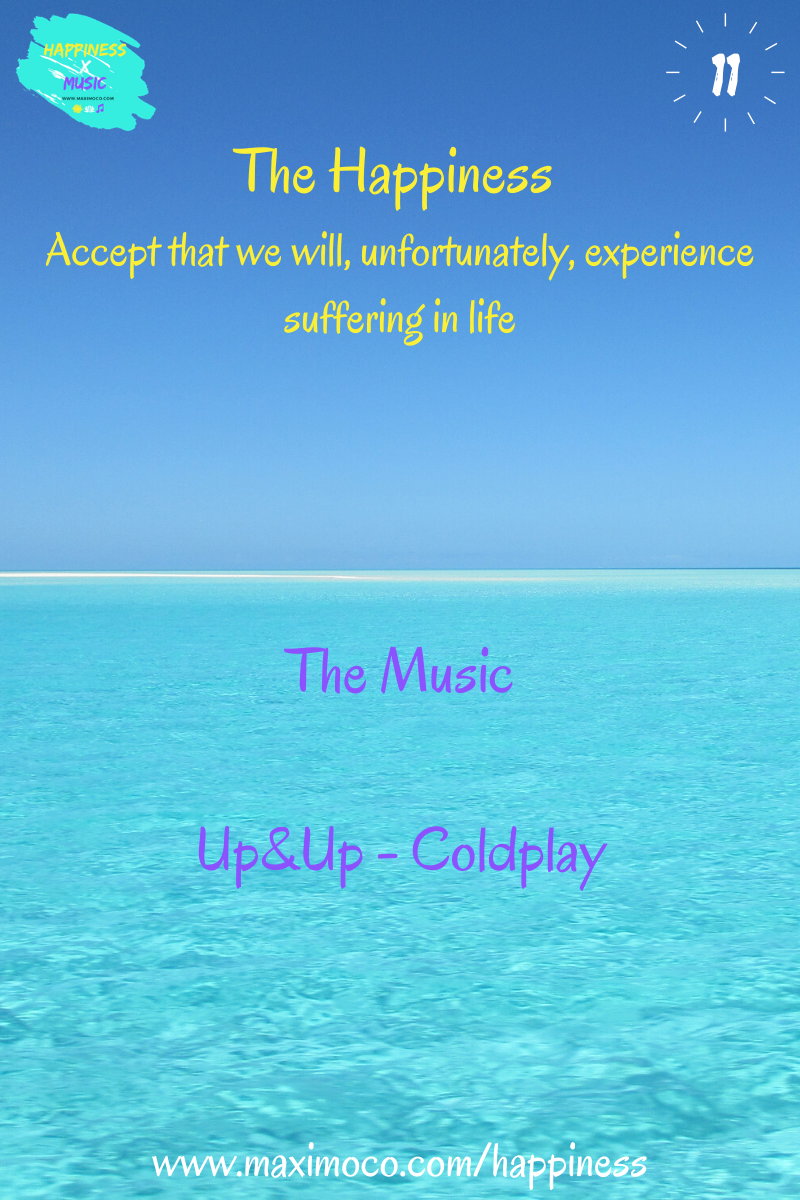

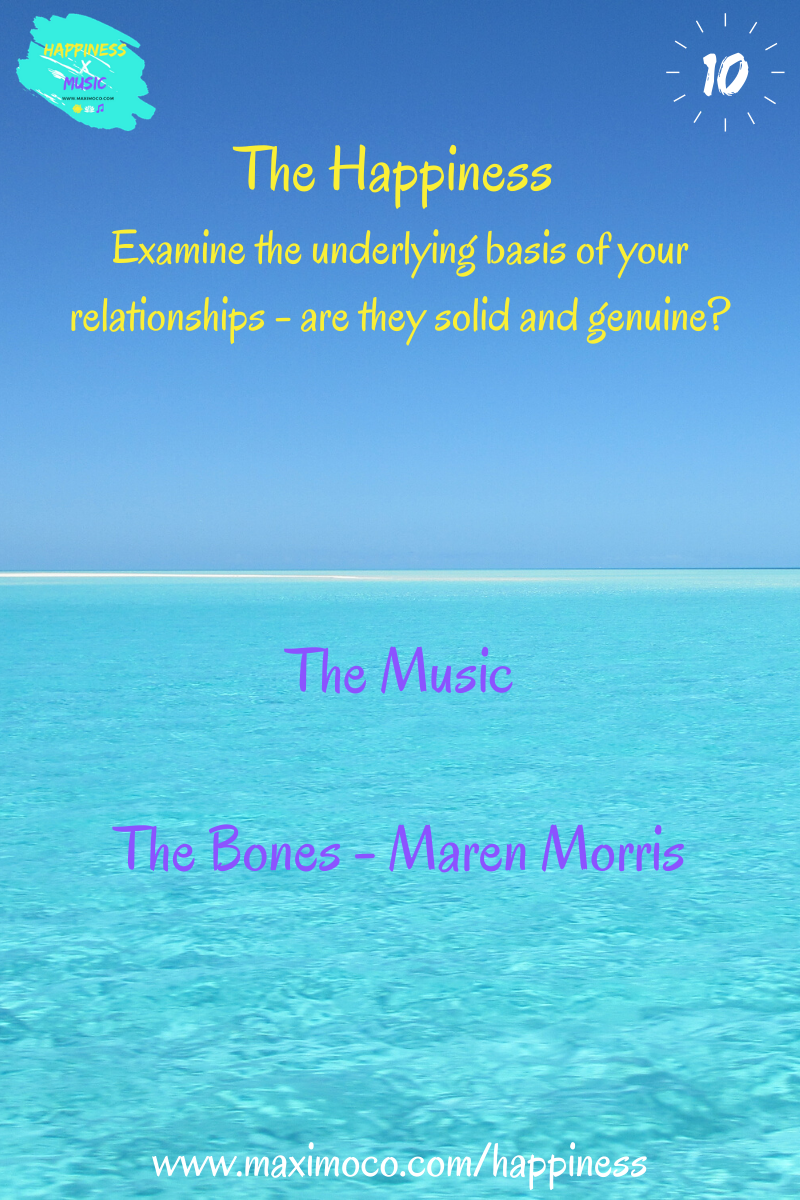

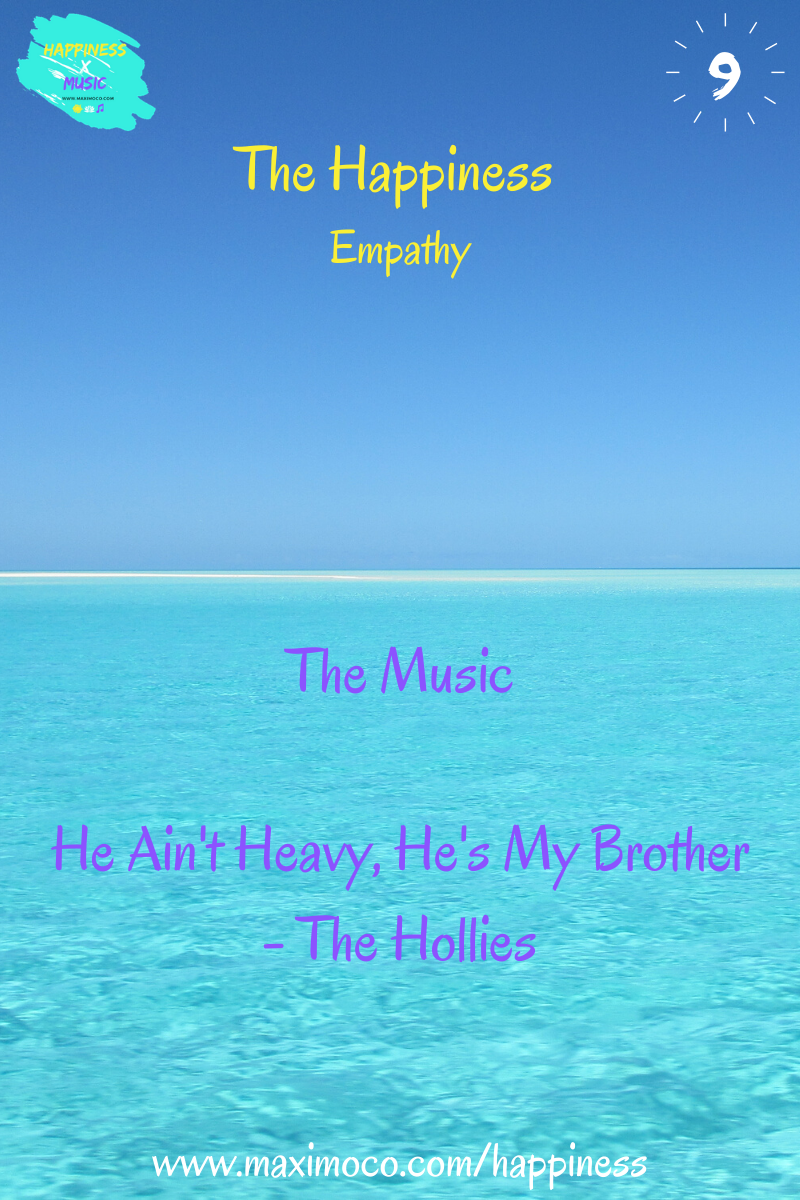
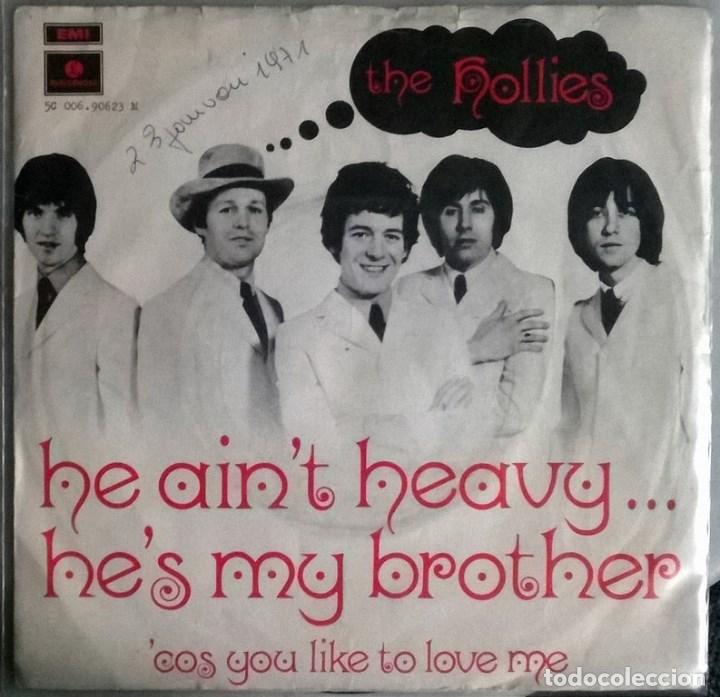
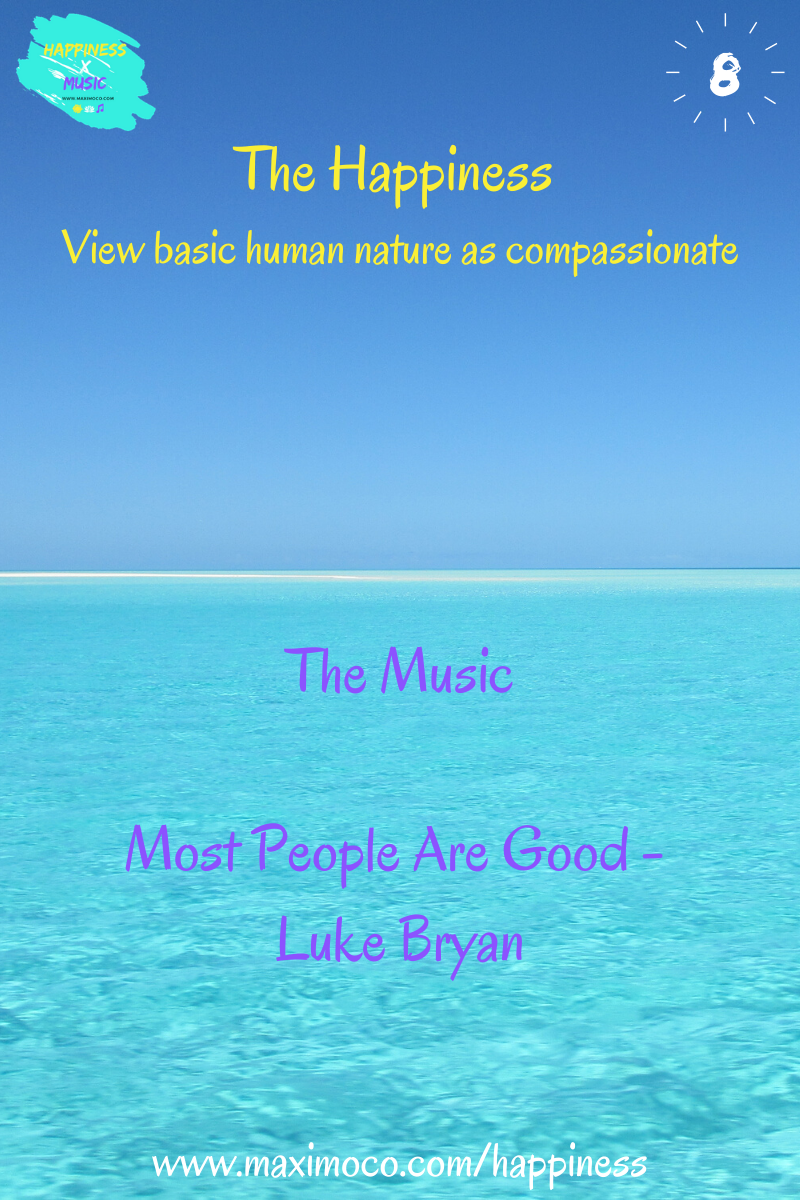

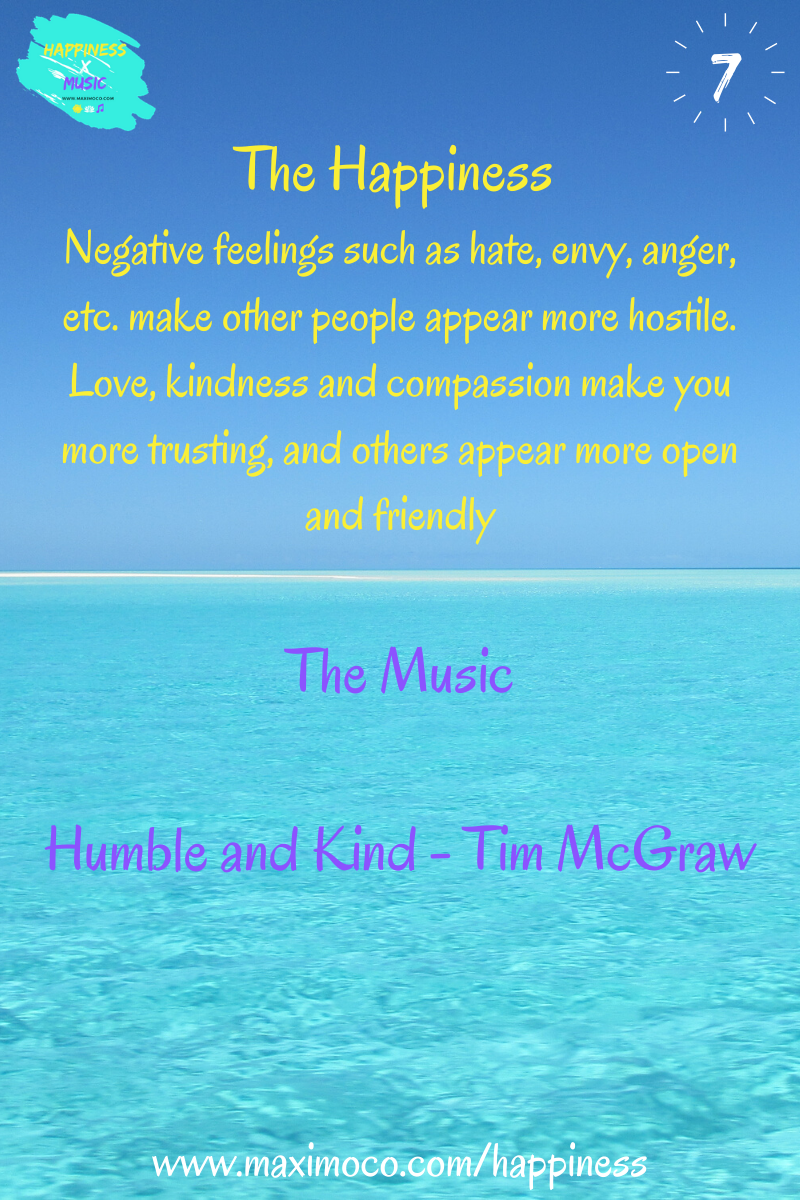

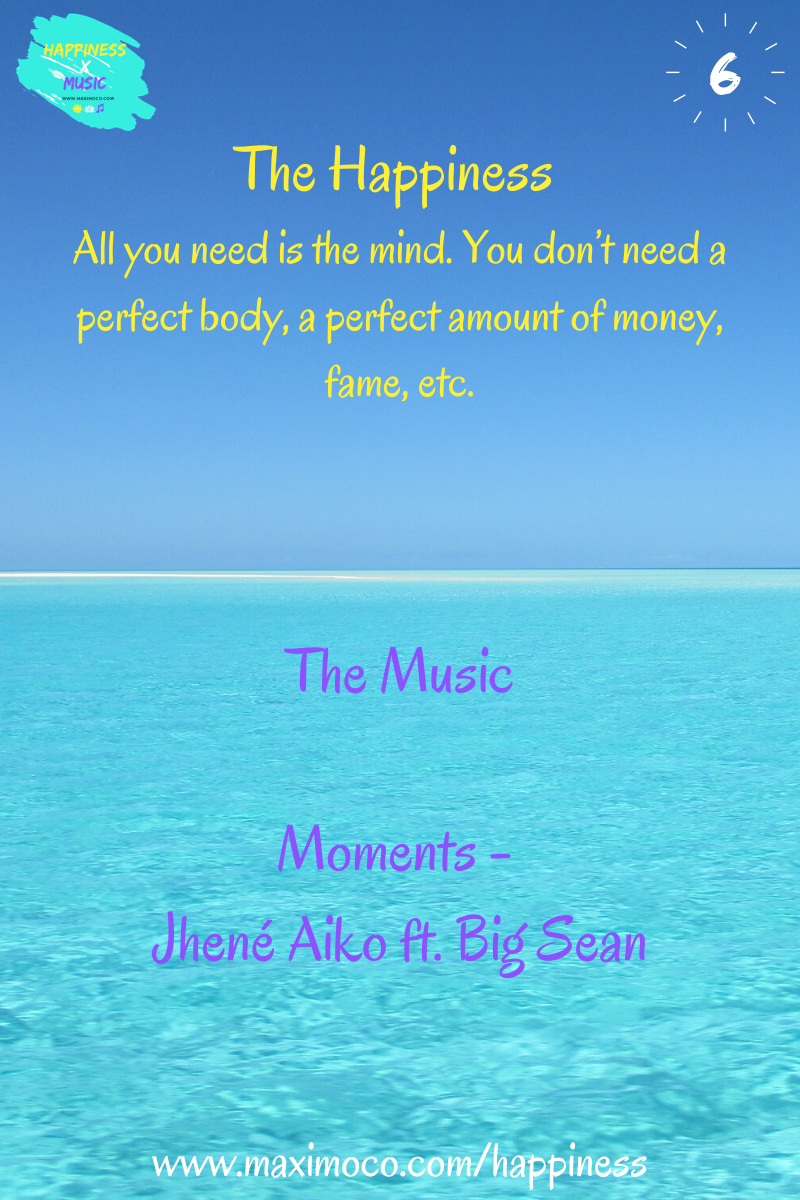
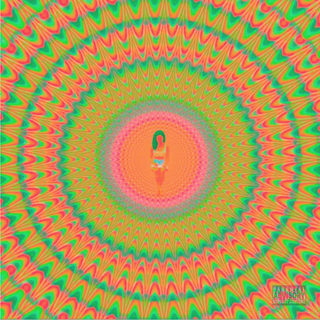
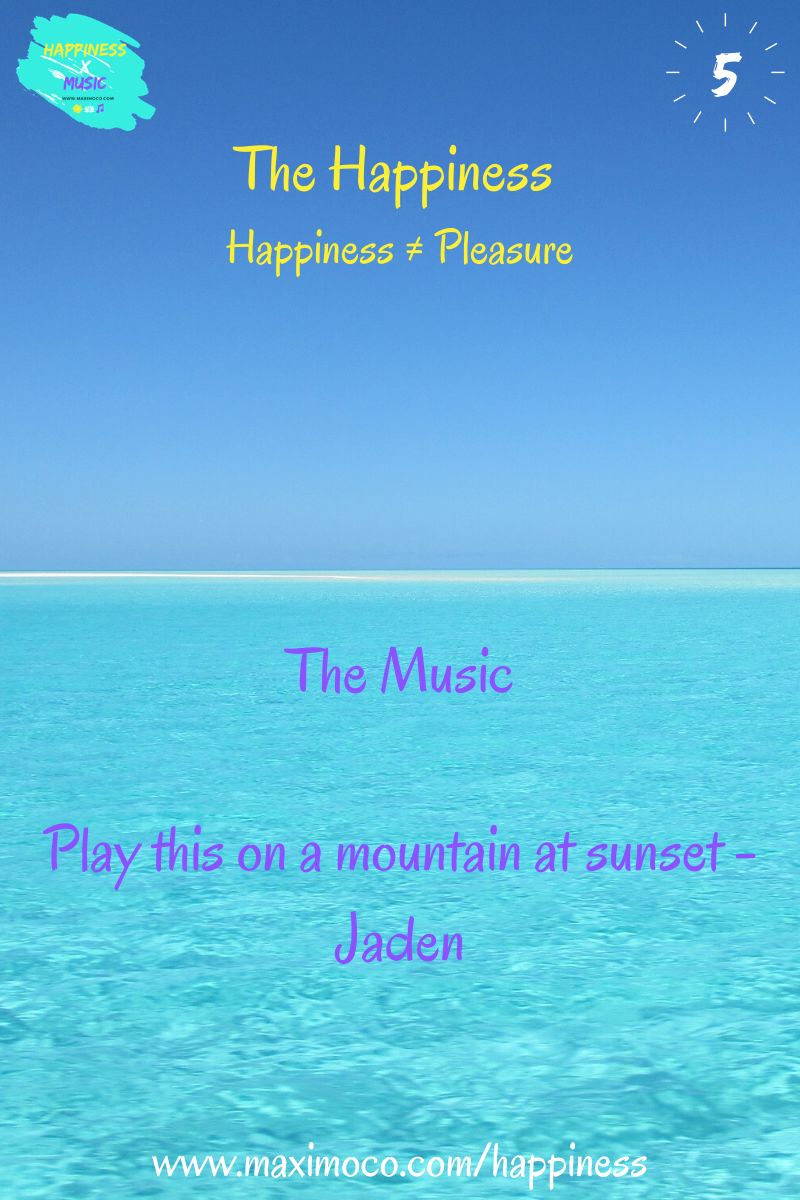

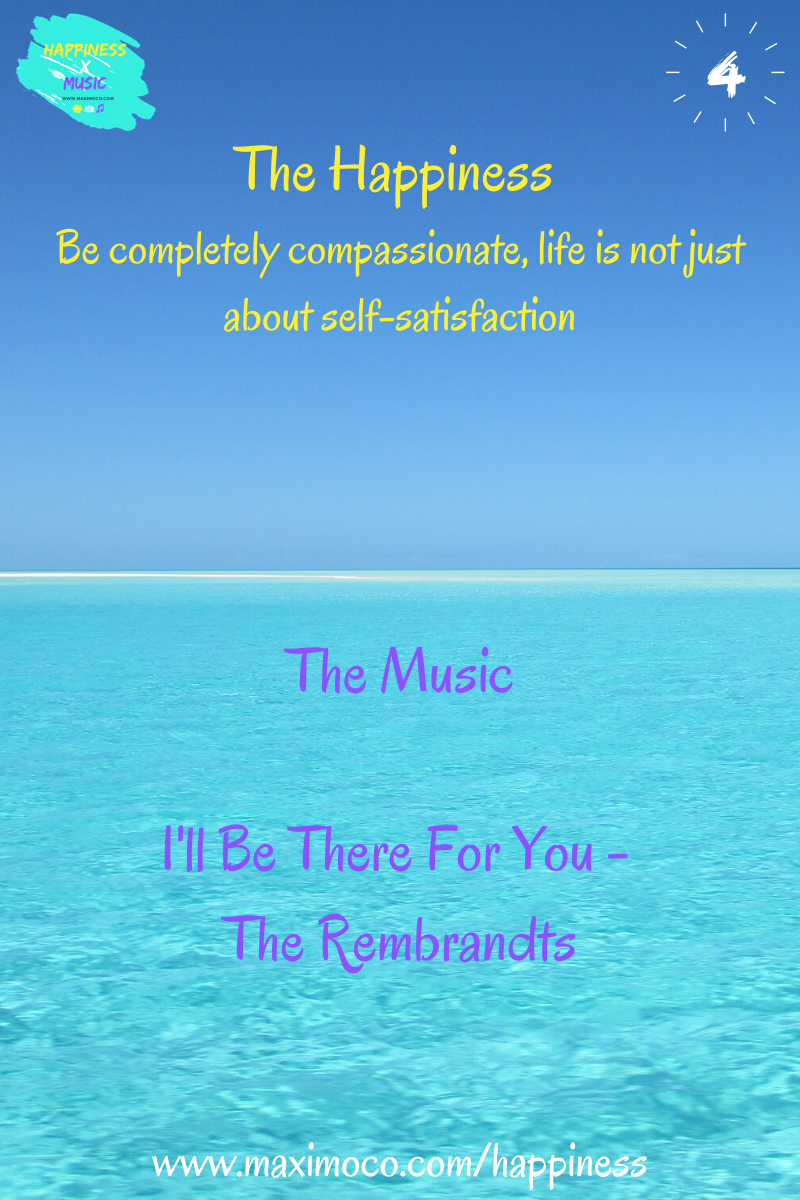
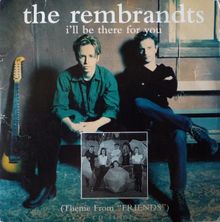
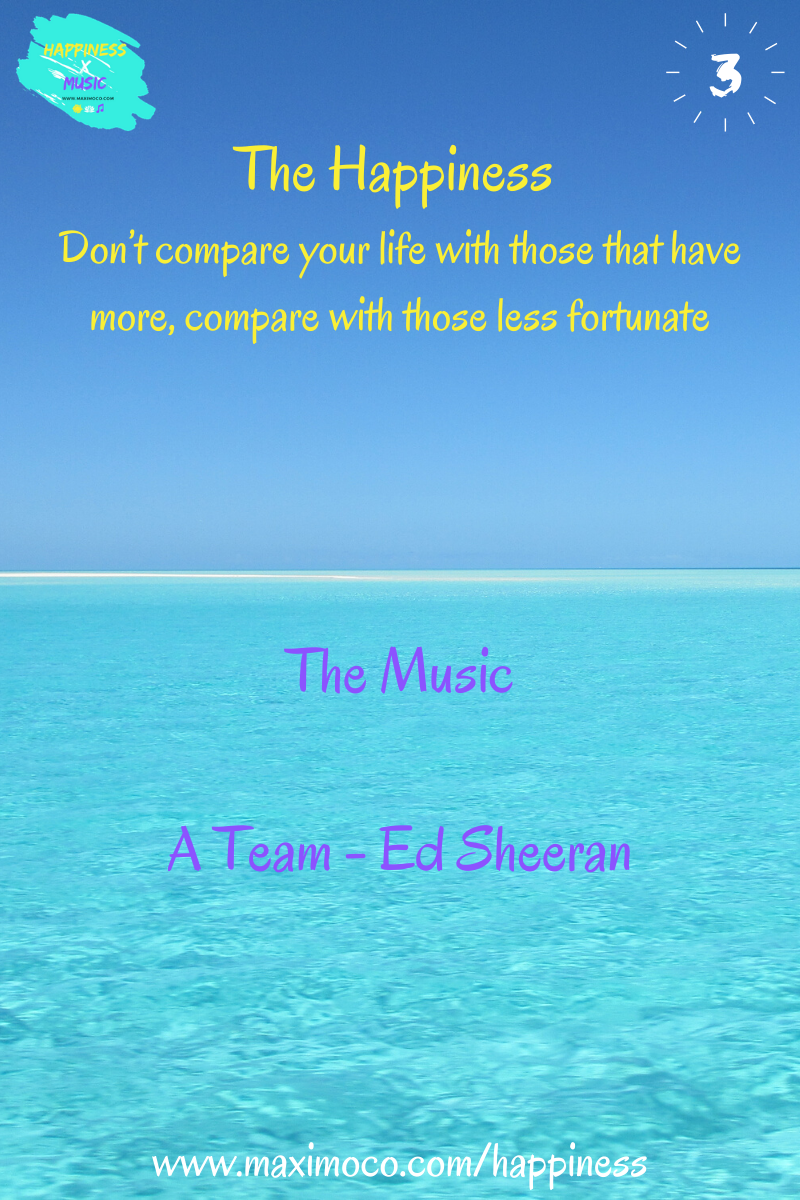


 RSS Feed
RSS Feed